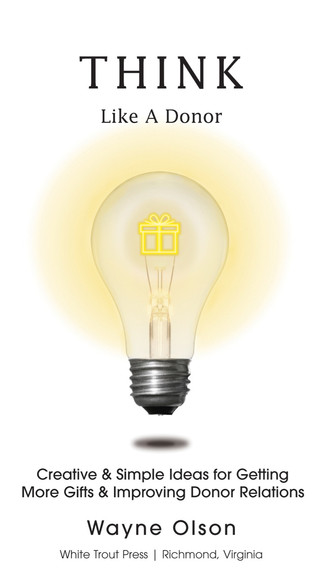Cranky Calls – Why you should take the tough calls
- andyragone

- Oct 10, 2023
- 3 min read
Updated: Aug 24, 2024
By Wayne Olson Senior Director, Planned Giving, Shriners Children’s
Wayne.olson@shrinenet.org
We have all heard or taken complaint calls. However, the next time someone calls to gripe about your nonprofit, don’t see it as a problem. Make it an opportunity. Take the tough calls.
When I lead retreats, I teach new fundraisers the one thing they can do to accelerate their career that has the biggest effort-to-payoff ratio is to take the hard phone calls. Seek and develop a reputation so that when that annoying call comes in, everyone knows you are the one to get it. Your coworkers will love you. This also works for experienced fundraisers wishing to show how wise they are.
Grumpy callers say one thing but mean another.
When a donor calls to complain, you will hear tough words. They will tell you how horrible it is that:
A) You have not thanked them (at all, enough, or the right way).
B) You did not return a call (or email).
C) They did not like something they saw in the news.
D) Their pet giraffe is missing, and it is your fault.
However, while the donor lists the offenses in detail, the underlying issue is always the same. The donor has loved us more than we have loved the donor. The script may be about needing to be properly recognized. The hurt is about, “How could you do this to me?” That is something you can fix just by listening.

In a world where everyone talks and no one listens, those who listen stand out.
When a complaint arrives, most fundraisers will respond with a list of reasons or excuses why the error occurred. No one has ever won an argument. Don’t try to win one with a donor.
Instead, listen. Be a friend. Don’t say anything other than, “I understand why that would be upsetting to you,” or “that’s horrible,” or “I would be concerned just like you are.” Admittedly, this takes a little humility. However, remember your job is not to be right. Your job is to have authentic relationships with the people who power your mission.
The next time someone calls with a complaint, remember the call began with a pain, one that was significant enough for the donor to call. Consider, too, that the ones who call are the ones who want the situation made better. In contrast, the ones who don’t call and tell others about their misfortune are the ones who cause the most grief. Want to be a hero? Take the tough calls. You may discover they aren’t so tough after all.
...
Please visit Wayne's site to learn more about or purchase his books. Type in "Stars" for a 25% savings when in checkout.
About Wayne Olson
Wayne is the Senior Director, Planned Giving for Shriners Children’s. He leads the planned giving team responsible for raising funds for one of the largest children’s hospital systems in the world.
He is a sought-after trainer, consultant and speaker on motivation, customer service and leadership. In 2014 Fundraising Success Magazine honored him by awarding Wayne “The Most Inspirational Speaker of the Year.”
Wayne is the author of six books including: Fundraising for Nonprofit Board Members, which is available on Amazon and at Wayneolson.com. His other works include: The Disney Difference, How to Give a Great Speech or Presentation, Big Gifts, Small Effort, and Think Like a Donor. His newest book, Words of Encouragement, is now available.












Comments